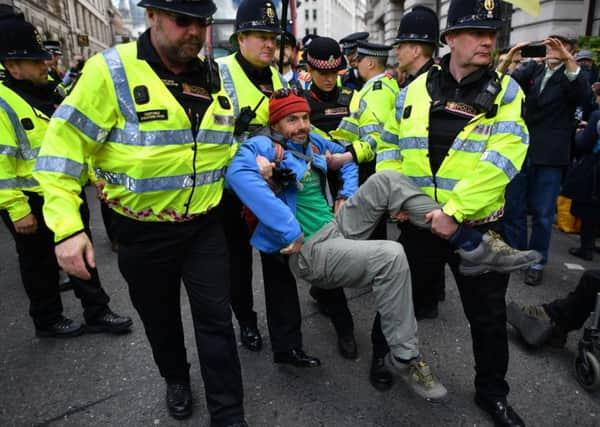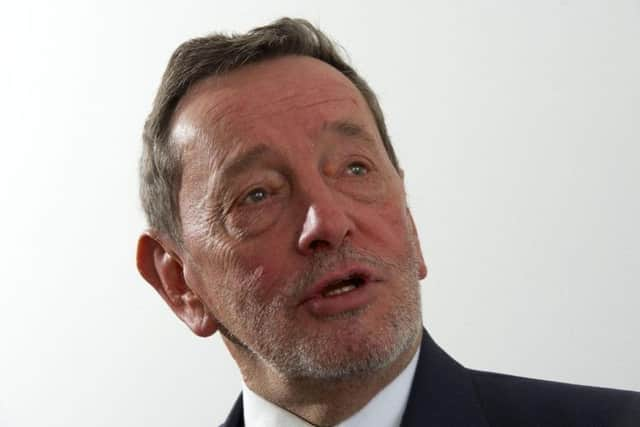Why EU elections could be a chance to focus on climate change – David Blunkett


For the Conservatives and for Labour, their policies – and some would say the fudge – stem directly from the fact that the question put in the 2016 referendum, and the answer given by the electorate, provided a direction of travel but no map on how to get there. This basic fact has been misunderstood by those who simply thought we were signing out of a club rather than a complex economic and social relationship.
As I have indicated in previous articles, this is as much the fault of those on both sides of the argument in the lead-up to the referendum result, as it was for the public’s failure to engage with the reality of what European Union membership entailed.
Advertisement
Hide AdAdvertisement
Hide Ad

I do not intend to re-run the debate or the points I’ve made over recent months, but rather to ask this question – why on earth aren’t we using this election as an opportunity to spell out the future for European and global challenges, whether in or out of Europe?
Let us be clear, whether we do eventually leave the EU or not, we are part of the European continent. We are integrally linked by geography and history, by economic necessity and social circumstance, with what happens in the rest of both the European Union and the wider continent.
Advertisement
Hide AdAdvertisement
Hide AdBy the reality of globalisation, trade, conflict and people movements, and, yes, by culture, Britain is part of the rest of the world and has to work out its relationships in an every increasingly complex environment, not least in tackling issues such as climate change.
But the leaders of the so-called ‘Extinction Rebellion’, by disrupting travel and consequently increasing pollution in London, were the same type of historic anarchists who know quite a lot about gaining attention and causing havoc to others, while having little idea of how to bring about long-term change.
This involves the ability to win over hearts and minds rather than alienating the very voters who, in a democracy, will determine the balance between dramatic improvement in reducing carbon emissions and people still being able to go about their daily lives.
A pity therefore that, because of the enormity of the cuts in police funding, early and decisive action to move the protesters off the highway was not forthcoming.
Advertisement
Hide AdAdvertisement
Hide AdI raise this point because the European elections, like them or loathe them, could have been an opportunity to demonstrate that you can only bring about substantial reductions to emissions if you work with other countries in that endeavour.
Wiping out the whole of the steel industry (which still plays a major part in South Yorkshire) may be a passing concern to a middle-class youngster partying in the sunshine in April in London, but those of us who remembered the 1980s learnt the hard way that you must have a realistic time-scale – and a well thought-through programme – to be able to ensure that rapid technological and economic change does not end up with the same group of people being the victims all over again.
At the height of the disruption in London, I did have the thought that these same people (or their mums or dads) from comfortable homes, and with great prospects for the future, would probably have been hosting striking miners back in 1984. The irony of course would have been that their slogan would have been ‘Coal, not dole’ – with the aim of keeping the pits open. Today the campaign would be to close them.
I make the point not because I am unsympathetic to a much more urgent approach to tackling this global challenge but because, as with our relations with the European Union, good intentions often have perverse outcomes.
Advertisement
Hide AdAdvertisement
Hide AdCouple this with all the other issues that require a joint cross-border approach, and a manifesto for global engagement would surely be both educative and, I would hope, inspiring.
Understanding the challenge arising from the breakdown of the agreement with Iran on nuclear development, or the knock-on effects of what is happening in Libya, are genuinely global problems in which Europe, as a whole, has a voice. The giant tech companies and their social irresponsibility are another prime example of why collaboration between countries is so vital.
Whether in or out, whether we reach a deal or not, and whatever time we may have MEPs sitting in Strasbourg and Brussels, the problems will be the same. Which is why if, by chance, the British people are given another opportunity to consider our place in Europe, then the inter-relatedness of the major challenges that face us should be top of the agenda.
Surely a reformed, modernised, less bureaucratic process for facing the momentous issues of our time could, and should, be devised? What a tragedy if Britain were not up for playing a full part in realising a better tomorrow.
David Blunkett is a Labour peer. A former MP for Sheffield Brightside and Hillsborough, he was Home Secretary from 2001-04.